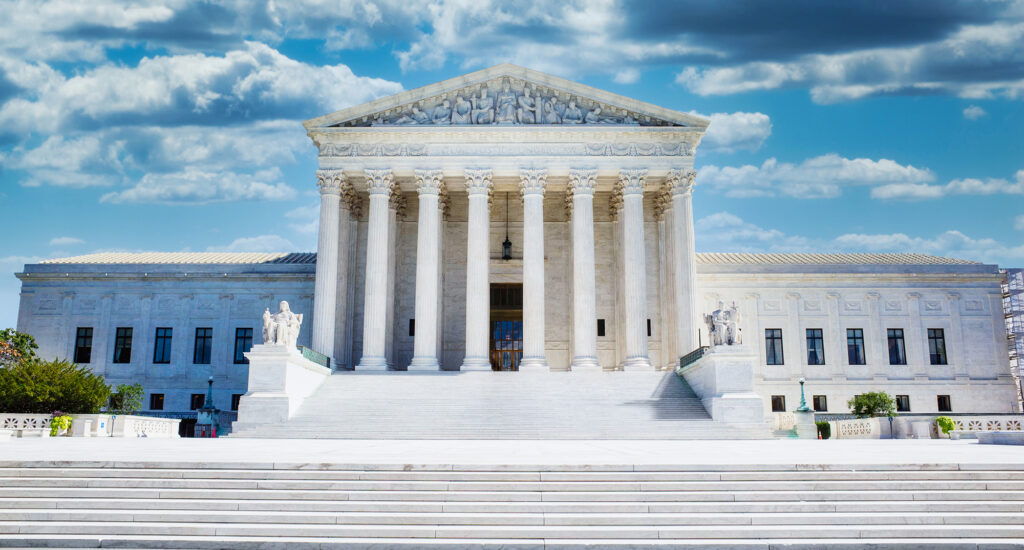The Supreme Court Just Ruled on Your Health, Rights & Representation

As we mark three years since the U.S. Supreme Court’s decision in Dobbs v. Jackson Women’s Health Organization, which overturned Roe v. Wade and eliminated the constitutional right to abortion, the Court has issued a series of new rulings that further impact the health, rights, and representation of Black women, our families, and our communities.
❌ A Blow to Reproductive Justice — Medina v. Planned Parenthood South Atlantic
In a 6-3 decision on June 26, 2025, the Supreme Court ruled that Medicaid patients cannot sue states for excluding providers like Planned Parenthood from Medicaid programs, even when seeking non-abortion services such as cancer screenings and birth control.
Justice Ketanji Brown Jackson, in her dissent, emphasized the personal impact of this decision, stating that it “will strip those South Carolinians — and countless other Medicaid recipients around the country — of a deeply personal freedom: the ‘ability to decide who treats us at our most vulnerable.'” reproductivefreedomforall.org
This ruling sets a concerning precedent, potentially allowing other states to defund essential healthcare providers, thereby limiting access to critical services for low-income individuals.
BWHI has joined numerous organizations in signing a powerful letter to Congress, urging lawmakers to reject proposed Medicaid cuts that would be devastating to women and families across the country. For Black women and girls, Medicaid is a lifeline. It ensures access to prenatal visits, mental health care, cancer screenings, and more. It helps us stay healthy, care for our families, and build stronger futures. But right now, that lifeline is under threat.
Together with our partners, we’re calling on lawmakers to protect and strengthen the very programs that allow underserved communities to survive, heal, and thrive. We are proud to use our voice to make sure that message is heard. Learn more about the ruling here.
❌ A Setback for LGBTQ+ Inclusion — Mothers for Liberty v. Montgomery County Board of Education
On June 27, 2025, the Court sided with parents in Maryland who sought to opt their children out of public school lessons featuring LGBTQ+ inclusive books, citing religious objections. the74million.org+3them.us+3apnews.com+3
Justice Sonia Sotomayor, in her dissent, warned that this decision could undermine public education’s role in promoting inclusivity and respect for diversity. nypost.com+3apnews.com+3them.us+3
This ruling may embolden similar challenges across the country, potentially leading to increased censorship and marginalization of LGBTQ+ narratives in educational settings.
✅ A Win for Preventive Care — Braidwood Management Inc. v. Becerra
In a positive development, the Supreme Court upheld the Affordable Care Act’s mandate requiring insurance plans to cover preventive services at no cost.
This decision ensures continued access to essential services such as contraception, cancer screenings, and STI testing, which are vital for the health and well-being of Black women and our communities.
What You Can Do
The Supreme Court may have the final say in court, but we have power in community. Here’s how to take action in the face of these decisions:
- Stay informed. Understand how these rulings affect your rights—from reproductive care to preventive health and inclusive education—and share trusted information with your circle.
- Support frontline organizations. Back groups like In Our Own Voice: National Black Women’s Reproductive Justice Agenda, who just released their powerful 2025 Black Reproductive Justice Policy Agenda—a blueprint for equity, care, and dignity.
- Start the conversations. Help break the silence around reproductive health, LGBTQ+ inclusion, and the systems that affect our lives.
- Vote with purpose. State and local elections shape our access to healthcare, school curricula, and basic protections. Show up—and bring others with you.
At BWHI, we remain steadfast in our commitment to advocating for health equity, reproductive justice, and inclusive education. These recent rulings underscore the ongoing challenges we face, but they also reinforce the importance of our collective efforts to protect and advance the rights and well-being of Black women and our families.

